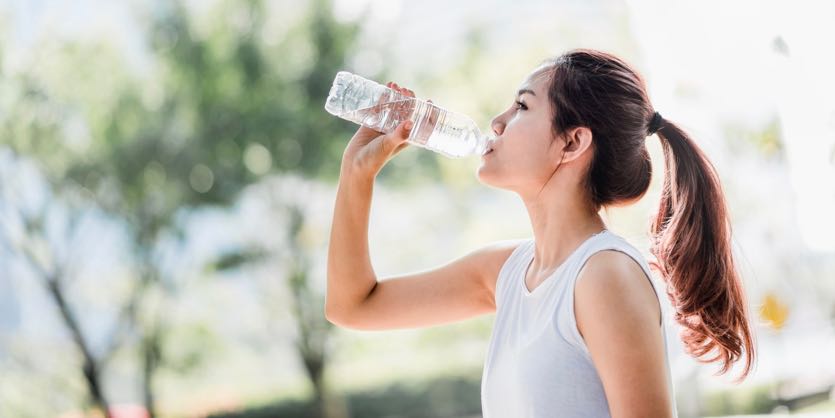Our Blog
Hydration Myths vs. Facts: Stay Healthy This Spring 2024
As we transition into Spring 2024, prioritizing hydration remains paramount for maintaining optimal health and well-being. Yes, we are all excited about Spring! And amidst the hustle and bustle of daily life, it’s essential to stay informed about hydration trends and debunk common myths to ensure you’re meeting your body’s fluid needs. To help you, here’s a comprehensive guide to help you stay refreshed this season:
Myth: Two quarts (64oz) of water daily is all adults need to be well hydrated.
Fact: The current recommendation for water intake is ½ oz per pound of body weight. This personalized approach takes into account individual differences in metabolic rate, activity level, and environmental factors. For instance, a 150-lb person would require 75 oz of water per day to maintain adequate hydration levels. By tailoring your water intake to your specific needs, you can ensure that your body receives the water it requires to function optimally.
Hydration Essentials for Spring and Summer
As the temperature rises during the warmer months, our bodies naturally lose more fluids through sweating. Therefore, it’s crucial to prioritize and replenish lost fluids and prevent dehydration. While water serves as the primary source of hydration, other fluids such as tea, coffee, milk, and juice can also contribute to your daily fluid intake. However, it’s essential to be mindful of beverages with high sugar or caffeine content, as they can have a diuretic effect and potentially lead to dehydration if consumed in excess. Aim for a balanced approach to fluid consumption, opting for water as your primary source of hydration while enjoying other beverages in moderation.

Incorporating Hydrating Foods into Your Diet
In addition to beverages, incorporating fruits and vegetables with high water content into your diet can significantly contribute to your overall hydration levels. Watermelon, cucumber, strawberries, and lettuce are excellent choices that provide essential vitamins, minerals, and antioxidants. These hydrating foods serve as a delicious and nutritious way to support your body’s hydration needs while promoting overall health and well-being.
The Importance of Electrolytes
During periods of increased physical activity or exposure to high temperatures, it’s essential to replenish electrolytes lost through sweat. Electrolytes, such as sodium, potassium, and magnesium, play a vital role in regulating fluid balance, muscle function, and nerve impulses. You can replenish electrolytes naturally by consuming electrolyte-rich foods such as bananas, oranges, spinach, and coconut water. Additionally, sports drinks or electrolyte supplements can provide a quick and convenient way to replenish electrolytes during intense physical activity or prolonged exposure to heat.
Prioritize Hydration for Optimal Health
As we embrace the arrival of Spring 2024, let’s make hydration a top priority in our daily lives. By debunking common myths surrounding water intake, adopting personalized hydration strategies, and incorporating hydrating foods and electrolytes into our diets, we can ensure that our bodies receive the fluids and nutrients they need to thrive. Whether through drinking water, consuming hydrating beverages, or enjoying electrolyte-rich foods, let’s commit to staying hydrated and refreshed throughout the season. And if you’re in need of the purest, most refreshing water, don’t hesitate to reach out to Fontis Water for convenient home and office delivery services. Stay hydrated, stay healthy, and embrace the vitality of Spring 2024!
And to have Fontis Water delivered to your home or office, call us at 678-494-1981. Our 100% pure spring water is delivered to homes and offices throughout metro Atlanta. Our mission is to deliver the best, most preferred natural mountain spring water with unmatched customer service and genuine enthusiasm. It’s been a family tradition since 1980. We look forward to being a part of your hydration routine in 2024!